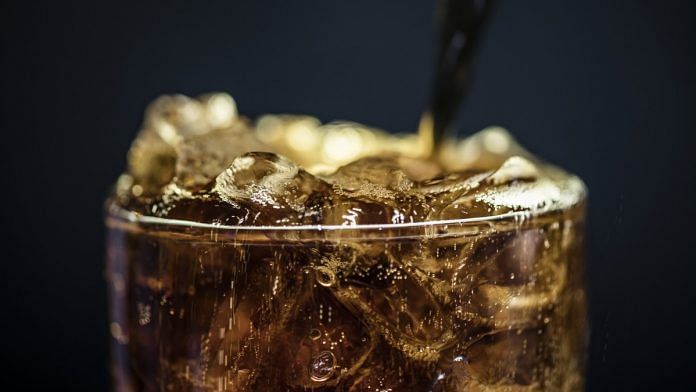Diet is a trendy, acceptable term in today’s world plagued by obesity, diabetes, and other noncommunicable diseases. As such, marketing a product as ‘diet’ food or drink is easier and more profitable. Anything labelled ‘diet’ is automatically deemed okay. Diet soda is an essential part of the meal for many people. In fact, it is a ‘free food’ for people who have diabetes or are trying to lose weight. According to market data from 2018, the diet soda industry is worth $4.1 billion and growing.
Consumers are seeking a ‘healthier’ alternative to high-calorie-high-sugar beverages. But is it reasonable to grant ‘healthy’ status to a food or drink that doesn’t contain calories or natural white sugar without a thorough risk assessment? I think not. Recent research on artificial sweeteners and their adverse health effects raises multiple questions about diet soda consumption in the long run.
There is no doubt that diet soda is a better option for reducing calorie and sugar intake, but that’s all. There is no other nutritional value to these drinks. Although we do not have many scientific trials to document the long-term health outcomes of diet soda, we cannot be mindless over drinking these drinks for the sake of our health.
Also read: Green tea is good for your health but marketing makes it seem like a ‘superfood’. It’s not
No nutrition
Diet soda is composed of water, artificial sweeteners, synthetic colours, preservatives, and flavours. These sodas provide low or zero calories, contain no white refined sugar, and zero nutrients to support overall health. Worldwide, millions consume diet soda to avoid weight gain or manage complications of diabetes without compromising the sweet taste.
A growing body of current research found possible association between large consumption of diet soda and increased risk of multiple health conditions impacting vital organs such as brain, heart, gut, kidney, etc.
Not good for gut health
An intriguing laboratory study from 2021 published in International Journal of Molecular Sciences found that artificial sweeteners like saccharin – sucralose that are widely used in manufacturing diet soda – could disease the gut bacteria: E. coli (Escherichia coli) and E. faecalis (Enterococcus faecalis). Pathogenic E. coli and E. faecalis can adhere to the gut wall, invade the Caco-2 intestinal cell lining, and cause multiple health hazards.
On the contrary, a 2020 randomised control trial on seven healthy participants did not find any alteration in gut microbial culture after 14 days intervention. However, the conflict of interest of this study mentioned PepsiCo to sponsor one the leading author’s participation and honorarium in a conference.
Also read: Can you lose weight by not eating after 8 pm? What the diet industry doesn’t tell you
Risk of noncommunicable diseases
People who try to lose weight often swap their sugary beverages with diet soda. However, these ‘sugar-free’, calorie-free drinks are not as helpful as we thought. In 2015, a group of academics compared two longitudinal datasets and found in both studies, participants who consumed at least one diet soft drink everyday had an elevated risk of metabolic syndromes than individuals who didn’t consume these drinks. These drinks were also associated with increased waist circumference and fasting plasma glucose level in both these studies.
Another 2017 large review involving 12 studies of 56,244 participants found both sugar sweetened beverages and artificially sweetened beverages were associated with various metabolic syndromes.
On the other hand, another trial that recruited overweight participants and fed either diet soda or water for one year found the diet soda group to reduce 6.21 kg after 1 year compared to 2.5 kg in the water group.
Association between diet soda consumption and increased risk of diabetes or cardiovascular diseases is conflicting too.
Analysis of 17 cohorts found that drinking just one serving of artificially sweetened beverages could elevate the risk of diabetes type 2 by 8 to 13%. However, another review produced contradictory results and couldn’t find any association between drinking diet soda and enhanced risk of diabetes. A review of six studies involving around 2.5 lakh people found drinking one artificially sweetened beverage per day increased the risk of high blood pressure by 9%.
Also read: Stay away from detox ‘scams’. No single food or drink can be your medical miracle
What are the alternatives?
Most of the studies discussing the effect of diet soda on human health are either experimental or observational that fail to confirm the ‘cause-effect’ relationship between consumption of diet soda and enhanced risk of noncommunicable diseases.
Some data reported alarming outcomes and more scientifically accurate data is needed to deduce conclusions on the health benefits or health hazards associated with diet soda. However, one thing is clear – diet soda doesn’t provide any nutrition and could be replaced with other nutritious drinks such as coconut water, homemade fresh juices, buttermilk, fruit-vegetable infused water. If you don’t have access to any of these or don’t like to drink these beverages, drink plain water.
If you think diet soda will help you lose weight, let me remind you of the fundamentals of nutrition science – no single food or drink can bring optimum outcome to health, a balanced diet can.



